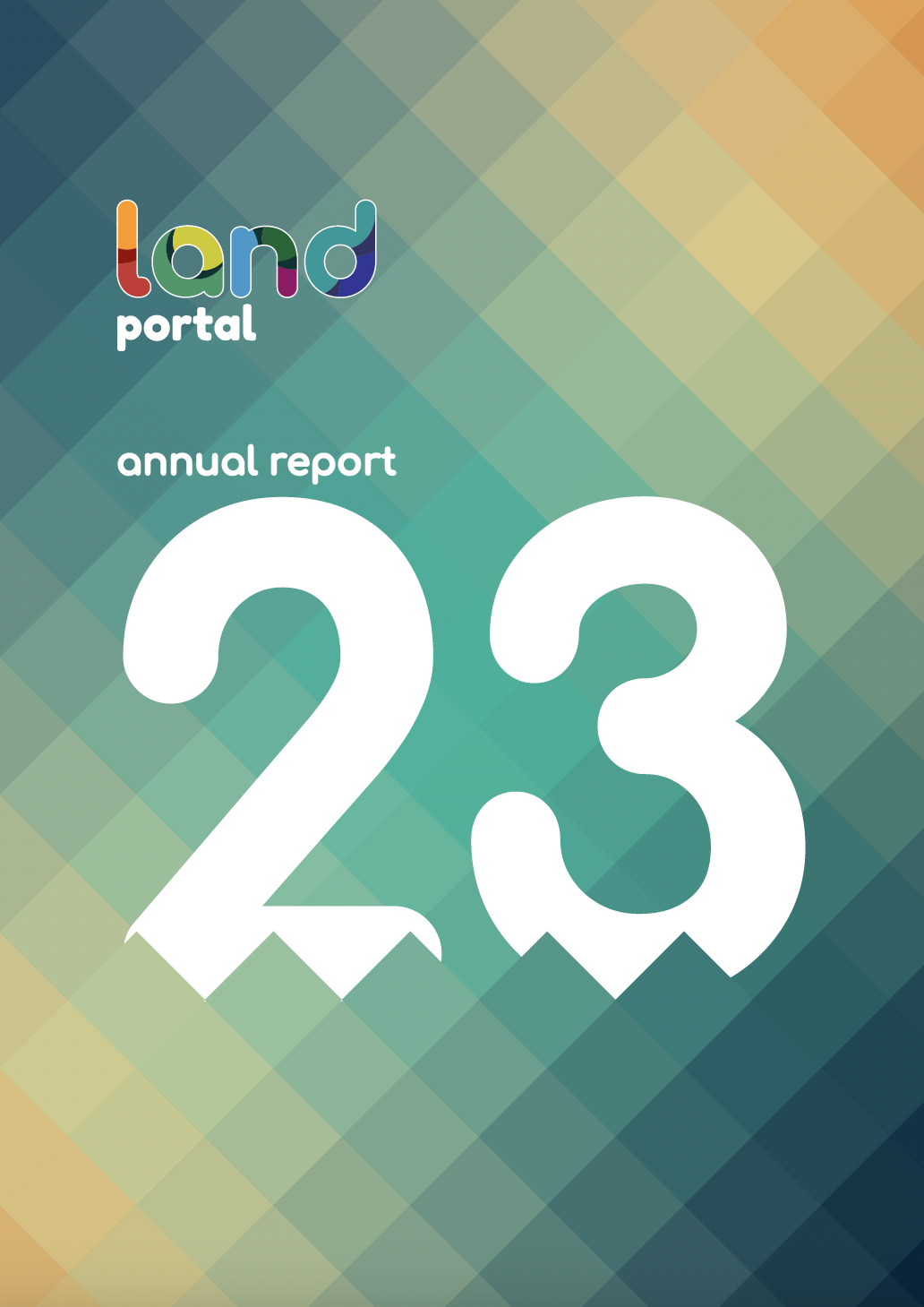Land Portal Annual Report 2023
The Land Portal Foundation's 2023 Annual Report presents a comprehensive overview of our efforts and accomplishments in transforming land data governance worldwide.
Our report highlights three fundamental pillars that have guided our work: Inform, Open, and Debate. Through these pillars, we've expanded our global database of land and property rights programs, enhanced land governance data management, supported data literacy and advocacy, and facilitated critical debates on land governance issues.



